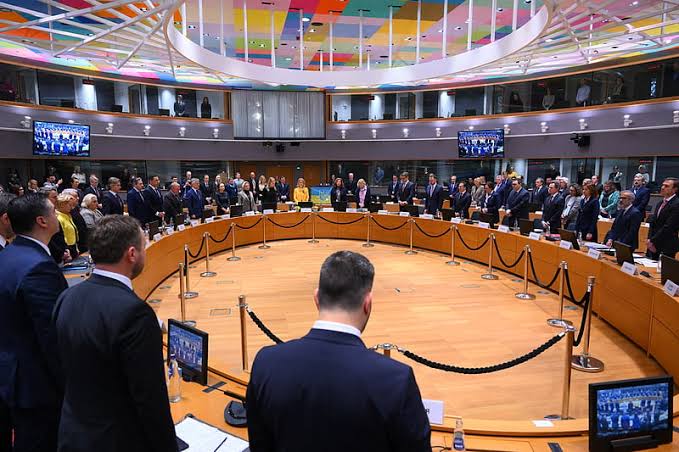
The European Union announced on Monday that it has relaxed sanctions on Syria’s energy, transport, and banking sectors to support the nation’s reconstruction efforts following the downfall of Bashar al-Assad.
Syria’s newly established leadership has been urging Western nations to lift the sanctions that were placed on Assad’s government during the civil conflict.
However, European countries and other influential powers have hesitated to take action until they receive definitive indications from the new Islamist-led administration in Damascus that they are committed to a genuine inclusive transition.
The measure endorsed at a gathering of EU foreign ministers in Brussels involves suspending sanctions on the energy and transportation sectors, permitting transactions with five banks, and making funds accessible to Syria’s central bank.
The European Union seeks to promote interaction with Syria, its citizens, and enterprises, particularly in the critical sectors of energy and transportation. Additionally, it aims to streamline financial and banking operations related to these sectors, as well as those necessary for humanitarian aid and reconstruction efforts, according to the bloc’s statement.
Authorities have indicated that these measures may be reinstated if Syria’s new leadership fails to uphold commitments to protect minority rights and advance democratic principles.
Syrian Foreign Minister Asaad al-Shaibani expressed that the new government welcomes the recent decision.
“We view this as a significant step towards easing the hardships faced by our citizens,” he stated in a post on X, labeling the sanctions from the era of former president Assad as “unjust.”
Years of international isolation following Assad’s violent suppression of opposition in 2011 have led to widespread destruction of Syria’s infrastructure and a severely damaged economy.
According to the United Nations, at the current rate of growth, it will take Syria over 50 years to return to its pre-civil war economic conditions.
see more: Macron suggests Ukraine truce could be weeks away
In the wake of Assad’s removal, the EU and other global powers are competing for influence in Syria, with Assad having previously received support from Russia and Iran.
It is important to note that the sanctions being lifted do not pertain to Syria’s interim president Ahmed al-Sharaa or his Islamist group, Hayat Tahrir al-Sham.



